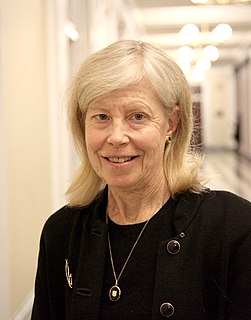A Quote by Orrin Hatch
No matter how badly senators want to know things, judicial nominees are limited in what they may discuss. That limitation is real. And it comes from the very nature of what judges do.
Related Quotes
Much of the Constitution is remarkably simple and straightforward - certainly as compared to the convoluted reasoning of judges and law professors discussing what is called 'Constitutional law,' much of which has no basis in that document....The real question [for judicial nominees] is whether that nominee will follow the law or succumb to the lure of 'a living constitution,' 'evolving standards' and other lofty words meaning judicial power to reshape the law to suit their own personal preferences.
On the one hand we want to preserve the integrity of the judicial branch, and we want to talk about judicial independence, and how damaging and dangerous it is when Donald Trump calls out Judge [Gonzalo] Curiel. And at the same time, at the end of the day, judges work for us and we can recall them and we can impeach them.
I do think the whole question of judicial accountability is a complicated one. On the one hand, you want to encourage judicial independence. And it's always, I think, problematic when an unpopular decision triggers a recall election. Because it sends a disempowering message to judges. On the other hand, it's the only way that voters have to rein in someone whose views are really so out of the mainstream of public opinion that they jeopardize the legitimacy of the judicial process.

























